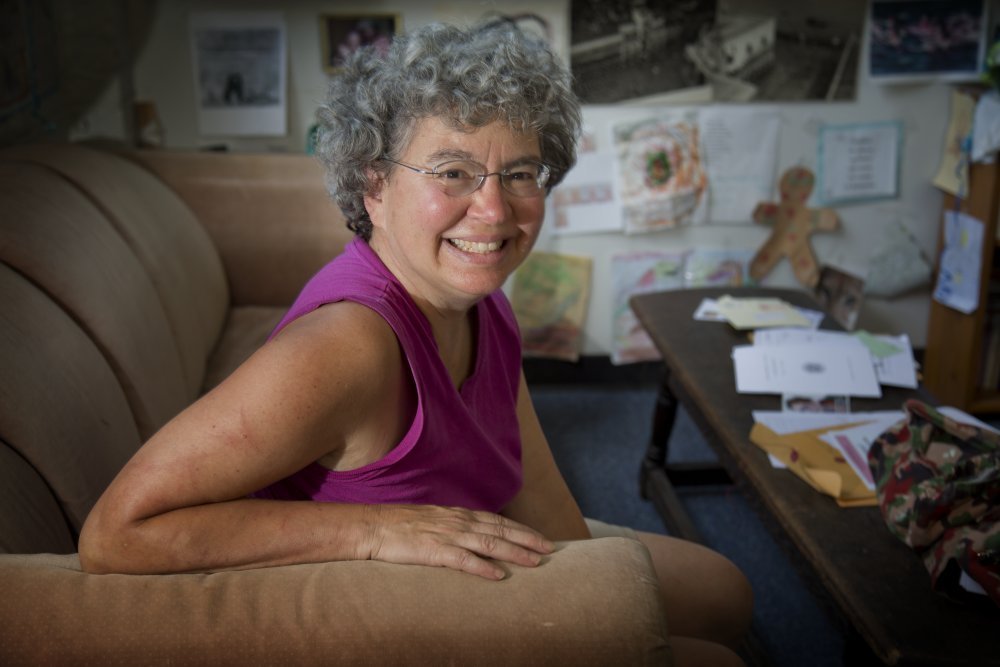Professor of Linguistics Donna Jo Napoli Receives National Honor

Napoli has helped to build Swarthmore's linguistics program from "a few courses here and there" to a strong and eclectic department.
A children’s book writer, college professor, and voice for the underserved, Donna Jo Napoli wears many colorful hats. But they share a common thread.
“I use linguistics in everything I do,” she says.
Recognizing the depth and breadth of Napoli’s contributions to the field, the Linguistic Society of America (LSA) will induct her as a fellow in January. The society has named 10 of the field’s leading linguists to its Class of 2015, entering them into the ranks of Noam Chomsky, William Labov, Steven Pinker, and Calvert Watkins.
“It’s so lovely to have affirmation from colleagues at this point in my career,” says Napoli, who joined the LSA as a graduate student 40 years ago. “It’s meaningful for me, especially since it’s uncommon for someone from the liberal arts community.”
Indeed, most of the other fellows in this year's class come from large research institutions such as Harvard, Stanford, and MIT, which means different responsibilities and teaching approaches. But Napoli has furthered the outside world’s understanding of the field by writing and co-authoring introductory textbooks on linguistics and syntax as well as the “ordinary person’s” guide, Language Matters.
She has also spearheaded several linguistics conferences and, as the first full-time linguist at Swarthmore, helped build the College’s linguistics program from “a few courses here and there” to a strong and eclectic department.
More recently, she has used linguistics to advocate for deaf children, earning acclaim from the LSA. Napoli is also studying the biomechanics of sign language and the visual principles observed in the grammar of sign languages through analysis of phonetics, phonology, morphology, syntax, and semantics. She recently expanded her study to matters of haptic communication and tactile intelligence.
She also advocates for the societal value of linguistics, which she says can bridge gaps between persons and cultures.
“A great amount of power is established through language interactions, and prejudices are often rooted in ignorance of language,” she says. “Learning linguistics can make you a better human being, more aware of what’s going on around you.”
The study of linguistics can also make you more intellectually curious and attractive to employers, she says.
“You’ll learn how to approach language as data, set up a hypothesis, and go looking for patterns,” she says. “The skills you’ll develop are useful in anything.”
It’s a good major for anyone interested in law school, she notes, with one of the highest correlations to top LSAT scores, and several Swarthmore linguists have gone on to medical school. The computational skills students develop also appeal to the technology, educational, and communications sectors, among others.
“It doesn’t shut the door to any graduate schools,” she says. “It opens them.”
Napoli and the other fellows will be inducted at the LSA’s annual meeting in Portland, Ore., on January 9.


